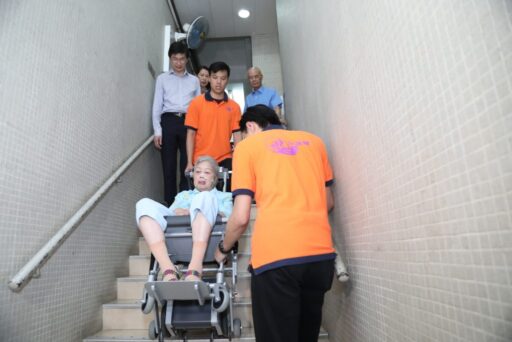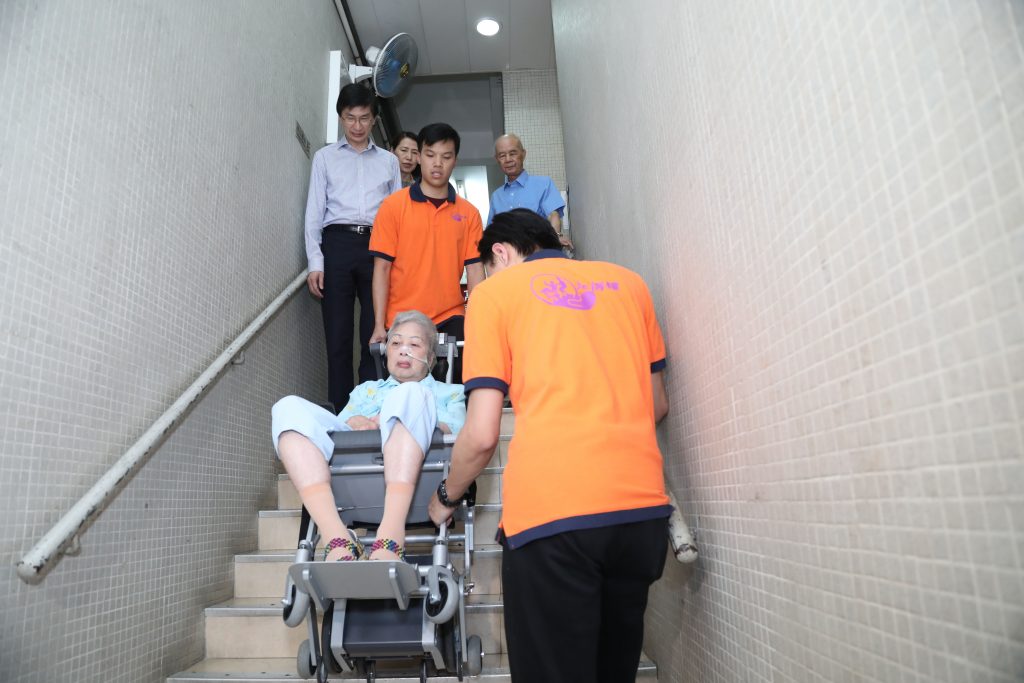Progress towards a more age-friendly urban environment can be found across a number of different sectors.
The Elder Academy scheme, an education and social inclusion initiative, was launched in early 2007 by The Labour and Welfare Bureau and the Elderly Commission. The activities provide access to learning opportunities in schools and university campuses and are aimed primarily at older people who have had little or no education. The scheme optimizes the use of existing educational facilities and has been successful in promoting both lifelong and initial learning for older people, encouraging participation and helping to maintain physical and mental wellbeing. School and university students are engaged in the scheme, thereby also promoting civic education and intergenerational understanding. Currently, some 125 elder academies in various districts and seven tertiary institutions offer a wide variety of courses.
Another intergenerational scheme is run by the NGO Aberdeen Kai Fong Welfare Association. This focuses on community education, intergenerational learning, and volunteer development, and promoting cultural heritage. Older people interact with students of all ages in activities including: creating stories and plays with primary school children; mentoring secondary school children and helping with homework; and secondary school children organizing trips with older people to explore Hong Kong sites.
© Hong Kong, China – The Hong Kong Council of Social Service’s “Stair Climbing Service”
The need for age-friendly accommodation design and development has been tackled by the Hong Kong Housing Society (HKHS), a non-profit organization that dates back to 1948. Its housing units emphasize home safety, care and support, health and wellness, so that people can grow old in their own homes. While HKHS provides only a relatively small part (just over 4%) of Hong Kong’s extensive public housing system, it is offering affordable housing in a niche position between the expensive private sector and government public rental housing.
In terms of health infrastructure one example is age-friendly hospital wards, a response to the large number of hospitalized frail older people, up to one-third of whom may have dementia. Care can be inadequate because of a lack of awareness of their needs. Currently two hospitals have adopted a principle of age awareness when refurbishing their wards (2).
Securing wider support for age-friendly policies is also important. The aims of the Hong Kong Jockey Club CADENZA Project (3) include changing the mindset and attitudes of the general public through a range of training and public education programmes as well as nurturing academic leadership in gerontology. Cross-sectional collaboration between organizations and the implementation of innovative elderly services are also encouraged in order to bring about a new mode of elderly care services to prepare for a rapidly ageing society, including planning for the needs of the “soon to be old” (Phillips et al., 2018).
In order to assess the age-friendliness of the 18 districts, between 2015 and 2017 the Hong Kong Jockey Club conducted a baseline assessment using questionnaire surveys and focus group interviews, in partnership with ageing research centres in four universities: The Chinese University of Hong Kong, Hong Kong Polytechnic University, The University of Hong Kong and Lingnan University. Meetings at the district level included older people, district councillors, and local government officials who reviewed findings and proposed improvement projects. Based on the findings (4), professional support teams from the four universities have worked with District Councils to develop a three-year action plan for each district, identifying directions and actions to enhance their age-friendliness.






